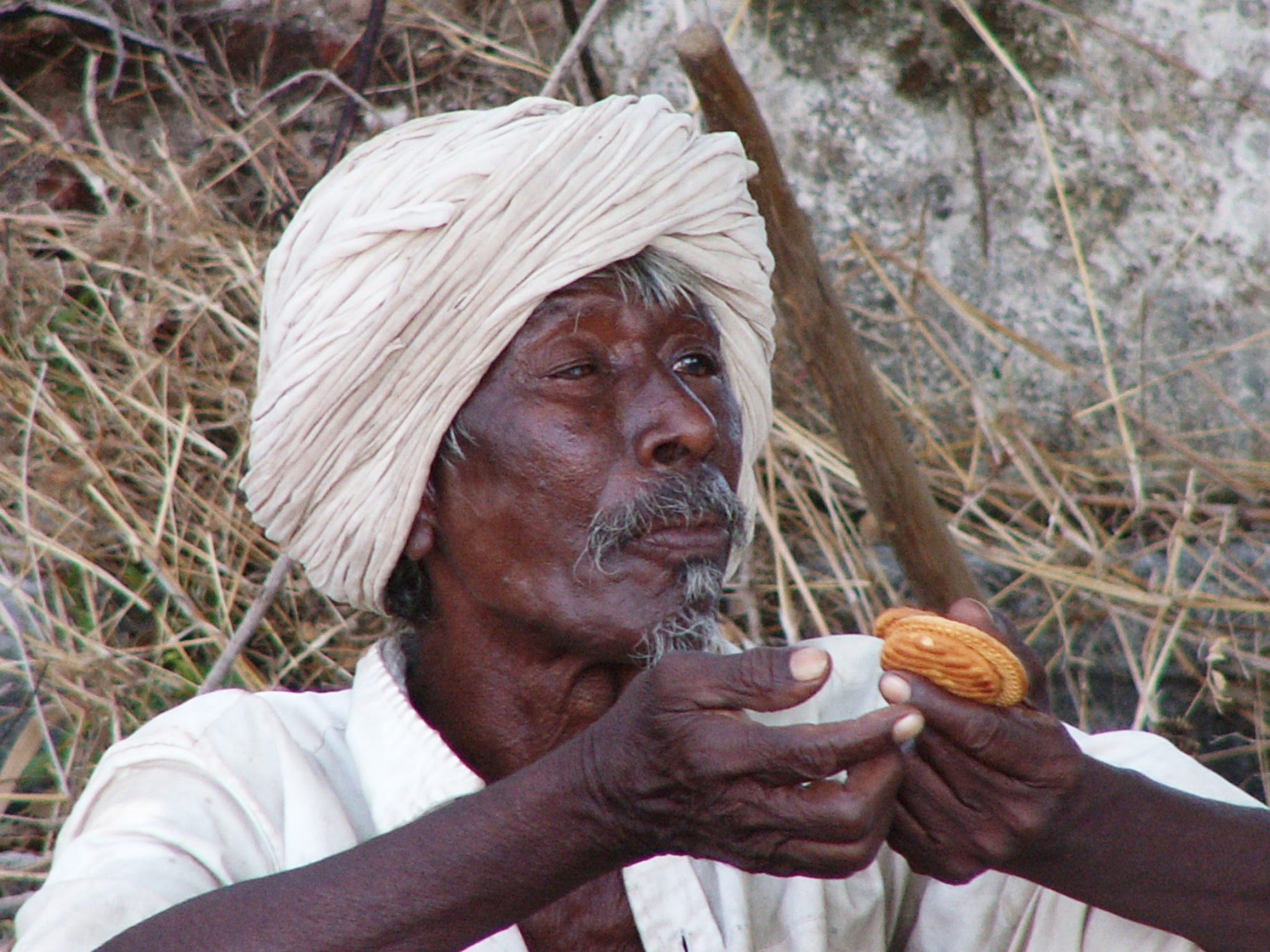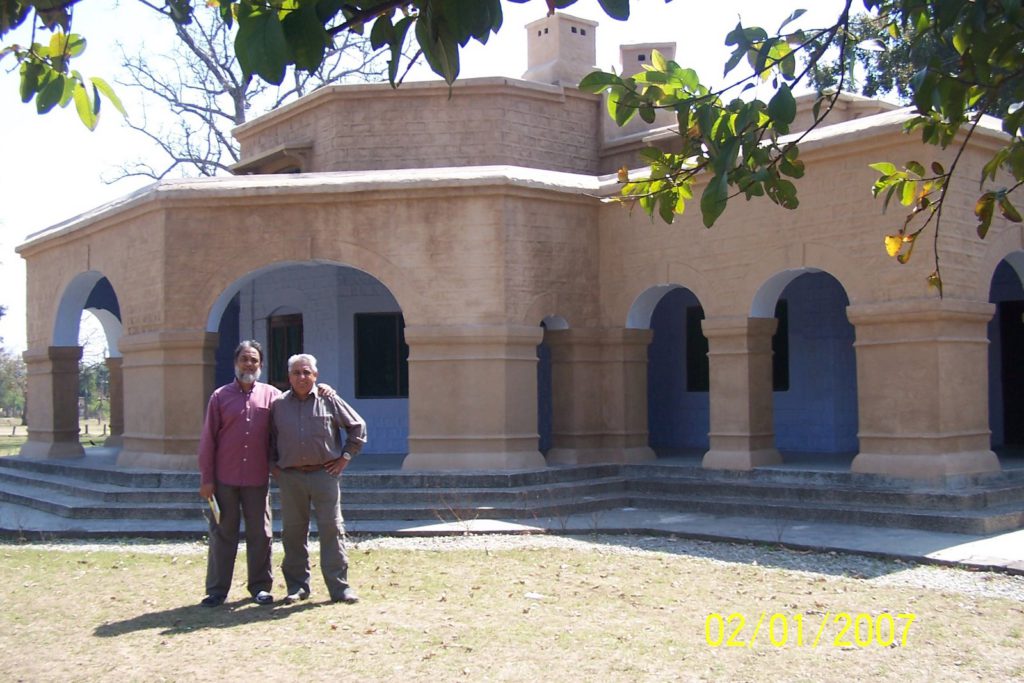
Building bridges through understanding
I am a bridge builder. The purpose of building the bridge is not to take a person from one side of the river to the other. It is so that people on both sides of the river can meet. Where can they meet? On the bridge, of course.
Recently someone sent me a video about the longest running study in Harvard, on human behavior. It has been running for 84 years.
Dr. Robert Waldinger, director of the Harvard Study of Adult Development and co-author of ‘The Good Life’, discusses lessons learned from the world’s longest scientific study on happiness. The object of the study is, ‘What makes a good life’. Originally there were 724 participants. 268 were sophomores at Harvard. Among the sophomores were the future President of the United States, John F. Kennedy, and future Washington Post editor Ben Bradley. Later they included in the study, 450 Boston Boys – less privileged inner-city children. Then they expanded the pool to include 1300 descendants. They have been tracking these people for 84 years and the retention rate is an amazing 84%. Every 2 years they answer a lengthy questionnaire. Every 5 years they surrender their medical records and every 15 years they have a face-to-face interview. And the lesson? Good relationships keep us happier, and healthier. How does social media factor into this? Especially given the problems with anxiety, depression, and mental illness. Waldinger says, “If you use social media to connect with people, it increases our happiness levels. But we only consume the social media of others, Instagram posts, (and I will add Twitter and worst of all WhatsApp university), happy pictures of holidays and beaches and so on then it tends to make us unhappier as we feel that we are missing out on the good life.” In their parallel case studies are two Harvard sophomores from highly privileged backgrounds. One became a high school teacher and retired. The other became a very prominent attorney, won lots of awards, and became very wealthy. In the study, the high school teacher came out the happiest and the attorney the least happy. Waldinger says that the study showed that this had entirely to do with how they maintained or failed to maintain relationships. What about religion, you ask? The study shows that religion per se doesn’t seem to make a difference, except that religious people reported that their religious practices came to their aid in dealing with crisis. I guess religious practice also facilitates relationships because people meet for prayer and prayer related activities. But we must beware that in the same breath, unless we combat it consciously, this is the root of us versus them.
I submit to you that all relationships depend only on one thing, appreciation. I want to propose to you therefore that you remove one word from your vocabulary – TOLERANCE. And replace it with another – APPRECIATION.
Why do I ask you to do this? I do because when you ‘tolerate’ someone, you are really saying to yourself, ‘This is really a nasty piece of action that I wish I didn’t have to deal with. Given a choice I would be far away from this person. But since I have no choice in the matter and I don’t want more grief, I will tolerate him/her.’ Think tolerance or tolerating and you will not be thinking of someone you love, or a double shot of espresso, or a triple chocolate Sunday, or a glorious sunset, or your dog or cat. You will not be thinking of anything that brings a smile to your face or a warm glow in your heart. You will be thinking, “O My God! Him again? Okay, let’s get it over with.” But when you think appreciation, you are thinking love, gratitude, missing someone, the pain of parting. You are thinking beautiful pictures, sounds, voices, dreams. So, I say to you, ‘Forget tolerating anyone. Ask, ‘How can I appreciate them?’
That opens a whole new world starting from enquiry in a non-judgmental way. To learn more about. Not to judge. It opens the doors in my mind and heart which may have been locked up by prejudice, racism, anti-otherism, all part of my childhood conditioning maybe. Let us remind ourselves, “I am not a child. Haven’t been for decades now. I consider myself to be an adult. An independent, educated, discerning, intelligent adult, capable of making my own decisions. Then I wonder why am I still stuck in my childhood conditioning? Why do I allow attitudes that I developed unthinkingly even unconsciously to continue to keep me in the rut of negative attitudes preventing me from forming positive, loving, and blessed relationships?” True it is that knowledge will set us free. We must learn about others. By doing that, we learn about ourselves. So, the question I ask myself and request you to ask yourselves is, ‘How much effort do I make to initiate and maintain relationships? What do I do to build bridges?
How do you build bridges? By consciously doing two things. One, focus on the commonalities. Two, see difference as a joyful discovery. Alright! Not joyful, then at least interesting. We must make the shift mentally that difference between people is precisely and only that – different. It is not good or bad, nice or nasty, virtuous or evil. It is simply different. And so, it is always interesting. For most of us, our conditioning is the opposite. The one who is different is someone I can only look down upon, fear, hate, and worse. The good news is that this can end today. Right now. But only if we choose to end it. So, are you ready? Let me tell you a story about unexpected commonalities. A friend of mine who is an Orthodox Jew and highly knowledgeable and calls me his ‘Chavruta’ (study companion), is in the Foreign Service. The Chavruta-system is a traditional rabbinic approach to Talmudic study in which a small group of students (usually 2-5) analyze, discuss, and debate a shared text. It is a primary learning method in yeshivas and guess where else? In traditional Islamic schools called Madrassas. My friend told me a story about his friend who was posted in Uzbekistan. He said that one evening sitting at a campfire of a local tribe waiting for the barbecue to be done, one of the elders asked him, ‘What are you?’
He said, ‘I am Jewish?’
The old man didn’t seem to understand what that was. Then he asked him, ‘Do you worship idols?’
My friend said, ‘No we worship the One Almighty God.’
Then he asked him, ‘Do you eat pork?’
My friend said, ‘No, we don’t eat pork.’
Then he asked, ‘Are you circumcised?’ My friend said, ‘Yes I am.’
‘Ah!’ said the elder. ‘You are Muslim. You just don’t know it.’
Believe me, we, all of us, have more in common than we know. And it is time to focus on that.
Maintaining relationships is something that I’ve done all my life, mostly unconsciously. Not for any reason. Just to keep in touch with friends. Sometimes I even wonder if the other person thinks of me as a friend. I mean, really as a friend that he/she values and remembers. The thought does come, “If they never take the initiative to make or maintain contact, why should I? Who am I fooling by thinking of them as being my friend?” But I still do it. I write stuff and send it to them. Occasionally I text them. Their response varies. Some are totally delighted and astonished that I made the effort to contact them. Others are noncommittal. Yet others ignore me and don’t respond at all. But what I realized is that this enables me to keep my ability to make friends healthy. That’s why if I count the friends that I am in touch with, the range is from 60 years to a few weeks ago and with ages ranging from 95 to 6 years old. No matter what it does for them, being in touch keeps me healthy, joyful, youthful, and connected with the world.
Today we live in a world where hatred is big business. Hatred and talking divisive language gets you elected and keeps you in power. What you watch on social media determines what you get on social media. So if you watch hateful divisive things, violence of one group against another, that is what you will get to watch more and more. You will never be allowed to see the other side. You will never know what your favorite group did to the ones you hate. And even if you do, you will say, ‘Good! They deserve it.’ In our brave new world, we are encouraged to despise and look down on others and to dehumanize and demonize them. Most of us swallow this hook, line, and sinker and we are drawn into the nets of the fishermen who sell us to the highest bidder. That is what we must fight because it is destroying us as a nation, as people and our world. The best antidote to this venom is to appreciate others and to express that appreciation. People are not mind readers. Even if they are, we all enjoy being appreciated.

I want to close with my favorite connection story. It was 2006, I think and I was in Hyderabad. I got a call from Sundeep Singh, my friend from my tea planting days which ended in 1993.
“Yawar!”
“Hi Sandy, how are you?”
“I am fine. Are you there in Hyderabad?”
“Yes Sandy.”
“I am coming tomorrow and will send you my flight details.”
“Great. Welcome.”
The next day, I go the airport to pick him up. We get home. We catch up. My wife gets us all a great meal. And we go to bed. Next morning, we have breakfast and as we are having our tea, I asked Sandy, “So, what do you want to do?”
“Anything you like,” he says. This is now getting more mysterious. After all the man came all the way from Delhi to Hyderabad for what? Must be some work-related reason, I tell myself.
“I mean is there anything you need to do here in Hyderabad? Someone you want to meet or want me to take you to some place?”
Sandy laughed. “I came to meet you. I haven’t seen you in years and just thought that I wanted to meet you and so I came.”
Thinking about this today, 2023, another twenty plus years later, I have the same tears in my eyes that I had that day. My friend came all that way, over a thousand miles, just to meet me? What can I say? I won’t even try to describe my feelings to you. I am blessed in so many ways. And one of those blessings for which I am eternally grateful, is Sundeep Singh.
Tell someone that you love them because you do. Do it and you will know what I am talking about. Because some things can’t be described. They must be felt. They will change you. You will not be the same person again. You will be a much better person. Go out of your way to be nice to someone, to help them, smile at them, hug them. Not because they deserve it, but because you do. Like Nike says, ‘Just do it.’ Connect for no reason. Connecting is the best reason.
Comments (0)
Comments for this post are currently disabled.
Loading comments...